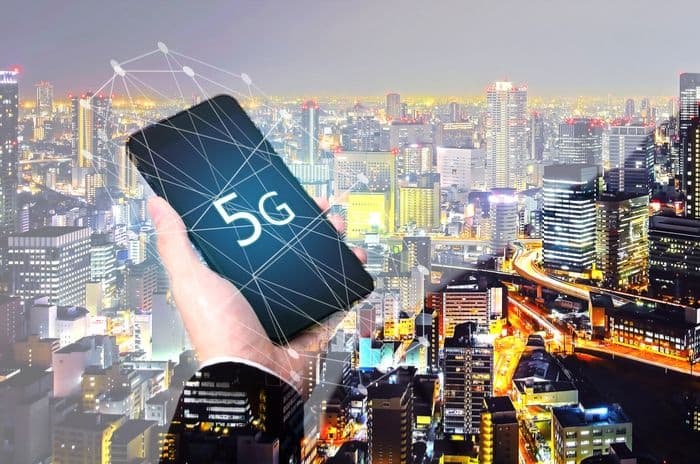Home > Mobile > News > 5G could double home internet speeds, new report suggests
5G could double home internet speeds, new report suggests
Independent report predicts cheaper, faster and better superfast broadband for UK households as 5G is rolled out.
In a report commissioned by mobile operator Three, an independent research body has predicted that UK households could benefit from a cheaper, more flexible home broadband service as a result of 5G.
The report, produced by Ovum, says that 5G technology will deliver speeds of 80 - 100 Mbps. This is around double the speed achieved on average with home broadband connections.
In addition to this, they say that 5G wireless services could serve as a replacement for traditional broadband connections. This could be a welcome proposition for rural householders, currently limited to slow, fixed line access.
Earlier this month, O2 announced they were investing in rural broadband connectivity using 4G technology. According to this new report, the advent of 5G could bolster such efforts and make superfast a reality, even in the most remote locations.

How can 5G be used for home broadband?
The technology is known as Fixed Wireless Access, or FWA. Using 5G services, householders and businesses could connect to the internet without a physical cable to the home.
Right now, mobile technology doesn't exist which can compete with the download speeds and latency levels of a fibre broadband connection. However, as 5G becomes available, switching to FWA will become a real possibility.
In comparison to 4G FWA, the 5G equivalent will use higher frequency bands which have much more available spectrum than LTE. This means there will be more capacity for traffic and faster download speeds.
Not only that, but according to this recent report, the deployment of 5G FWA will be around 50% cheaper than connecting to fibre. The connection can be much quicker too, thanks to plug and play set up with no engineer or cable drilling required.
This means customers could be paying much less for their contracts and will be able to take their connection with them when they move. This could save on things like early contract cancellation fees, something EE and Virgin have been pulled up for recently.
Could 5G save us all £240 a year?
According to the Ovum report, it could. They have estimated a per household saving of £240 per year by removing the need for fixed line rental.
They also suggest that, by not being locked into contracts for a year or more at a time, customers could be freer to shop around and switch providers to secure better deals.
Dave Dyson, the Chief Executive at Three, said that 5G would offer customers the choice to 'bin their fixed line' and enjoy speedier access at a lower cost. He also said the inevitable installation delay on a home move would be removed, keeping everyone connected throughout.
He said that three are investing heavily in 5G technology, saying that the efficient rollout of superfast broadband access is 'crucial to our economy'. Three plans to have 5G wireless home broadband available by the second half of 2019.
What does this mean for the fibre rollout?
Ovum's report highlights the real alternative that 5G could provide to the traditionally desirable high speed fibre-to-the-premises (FTTP) connection. With the government investing heavily in a full fibre rollout, could they be gazumped by rapid deployment of 5G FWA?
While FTTP connections currently offer the best solution to high speed internet access, if mobile operators get their skates on and release 5G FWA next year, there could be less impetus to continue the drive for fibre.
Although the government allocated a further £200m of funding to fibre deployment in the recent budget, we commented at the time that this was a 'drop in the ocean' compared to the costs involved in achieving a 100% FTTP coverage of the UK.
Perhaps FTTP will continue to be the preferred connection type for those able to access it, but for rural householders looking at an end date of 2033 for their connections, 5G FWA could offer a ray of hope.
Get insider tips and the latest offers in our newsletter

We are independent of all of the products and services we compare.

We order our comparison tables by price or feature and never by referral revenue.

We donate at least 5% of our profits to charity, and we have a climate positive workforce.
Latest News

05 December 2024
Merger of Vodafone and Three UK approved
19 August 2024
New O2 Essential Plan for those on social benefits
06 August 2024
Three UK moves to pounds and pence annual price risesGet insider tips and the latest offers in our newsletter


